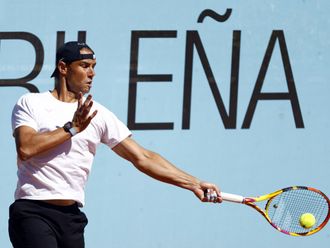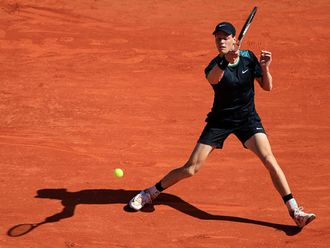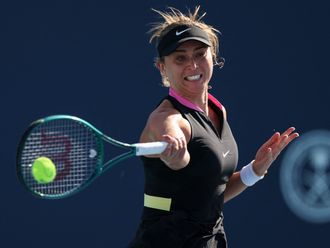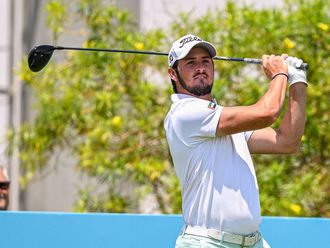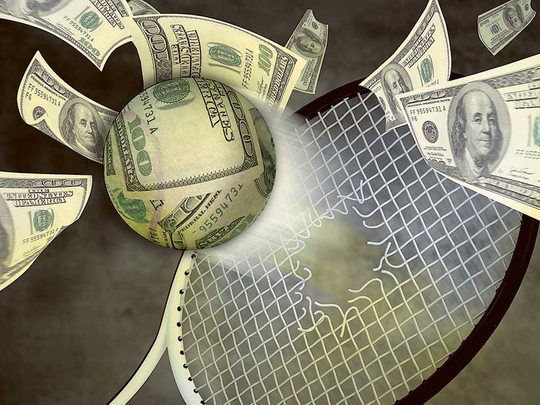
Melbourne: World tennis was rocked on Monday by allegations that the game’s authorities have failed to deal with widespread match-fixing, just as the Australian Open, the first grand slam tournament of the year, kicked off in Melbourne.
Tennis authorities rejected reports by the BBC and online BuzzFeed News, which said 16 players who have been ranked in the top 50 had been repeatedly flagged to the Tennis Integrity Unit (TIU) over suspicions they had thrown matches in the past decade.
Eight of those players were taking part in the Australian Open, the BBC and BuzzFeed News said.
The media reports, which follow corruption scandals in world soccer and athletics, created a stir at the event at Melbourne Park, with players expressing surprise at the allegations.
“When I’m playing, I can only answer for me, I play very hard, and every player I play seems to play hard,” women’s world number one Serena Williams told reporters. “If that’s going on, I don’t know about it.”
World number one Novak Djokovic said a member of his staff was approached about fixing a match early in his career, and he questioned whether betting companies should be allowed to sponsor big tennis tournaments. “I was not approached directly, I was approached through people that were with my team,” he said, after cruising through his opening match at the tournament against South Korean teenager Chung Hyeon on Monday.
Men’s world number seven Kei Nishikori of Japan said he had not heard of any incidence of match-fixing.
The BBC and BuzzFeed News said the TIU, set up to police illegal activities in tennis, either failed to act upon information that identified suspicious behaviour amongst players, or impose any sanctions.
All of the 16 players, including winners of grand slam titles, were allowed to continue competing, the media reports added.
TIU director of integrity Nigel Willerton told reporters in Melbourne he would not comment on whether any players on the pro tour were under investigation, saying it would be inappropriate to do so.
Reuters was unable to independently verify the findings by the BBC and BuzzFeed News, which said they had obtained documents that included the findings of an investigation set up in 2007 by the Association of Tennis Professionals (ATP), the governing body of men’s professional tennis.
The BBC and BuzzFeed News said they had not named any players because without access to their phone, bank and computer records it was not possible to determine whether they took part in match-fixing.
“The Tennis Integrity Unit and the tennis authorities absolutely reject any suggestion that evidence of match fixing has been suppressed for any reason or isn’t being thoroughly investigated,” said ATP chairman Chris Kermode.
The media reports said the 2007 ATP inquiry found betting syndicates in Russia, northern Italy and Sicily making hundreds of thousands of pounds betting on games which investigators thought to be fixed. Three of these games were at Wimbledon.
In a confidential report for tennis authorities in 2008, the inquiry team said 28 players involved in those games should be investigated but the findings were never followed up, the news organisations said.
Tennis authorities introduced a new anti-corruption code in 2009 but after taking legal advice were told previous corruption offences could not be pursued, they added.
Craig Tiley, Tennis Australia chief executive and Australian Open tournament director, said the Melbourne event had robust anti-corruption systems place.
“All involved in the administration of the Australian Open will not tolerate any deviations from our values and rules at any level,” Tiley said.
Tennis chargesheet
* Tennis governing bodies were aware of a core group of 16 players in world’s top 50 involved in match-fixing. None have been sanctioned.
* Eight of the 16 are playing in the Australian Open, the season’s first Grand Slam, which began on Monday.
* One top-50 player currently in the Australian Open is suspected of repeatedly fixing his first set in matches.
* Match-fixing is orchestrated by gambling syndicates in Russia and Italy who contact players in hotel rooms and offer $50,000 or more.
* The names of more than 70 players have appeared on nine leaked lists of suspected fixers, which were given to tennis governing bodies in the past 10 years.
* After a 2008 probe, which implicated 28 Tour players, all were allowed to continue playing without sanction
* Tennis Integrity Unit, which was set up to ensure fair play, admitted shelving the evidence of the 2008 report because a new integrity code they introduced afterwards “could not be enforced retrospectively.”
* The 2008 investigation was triggered by a notorious match between the world number four, Russia’s Nikolay Davydenko, and Argentina’s 87th-ranked Martin Vassallo Arguello, which attracted millions of dollars in highly suspicious betting on long-odds underdog Arguello to win from accounts originating in Moscow.
* Davydenko was a set and a break up and cruising to victory when he pulled out injured. An investigation “was unable to find evidence” that either player had been involved in any corrupt practice.



